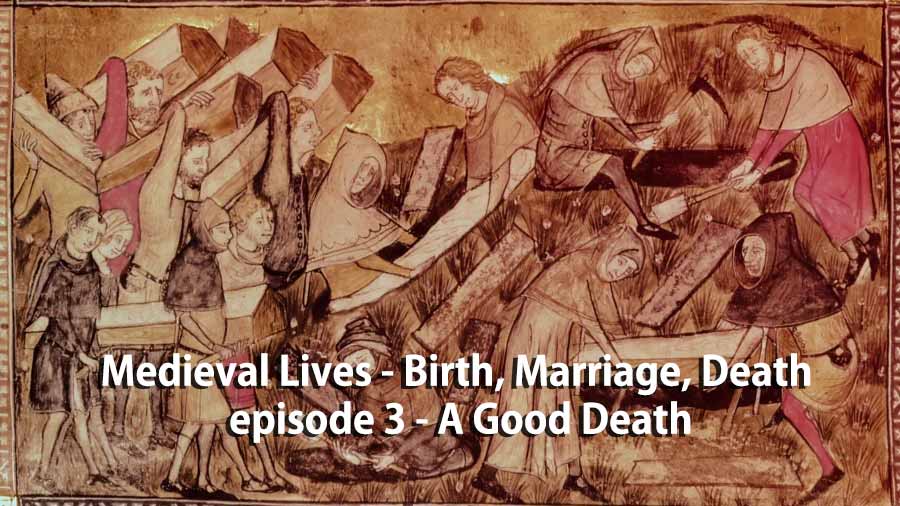Medieval Lives – Birth, Marriage, Death episode 3 – A Good Death: Most of the time we try not to think about death, but the people of the Middle Ages didn’t have that luxury. Death was always close at hand, for young and old, rich and poor – even before the horrors of the Black Death, which killed millions in a few short months.
However, for the people of the Middle Ages death wasn’t an end but a doorway to everlasting life. The Church taught that an eternity spent in heaven or hell was much more important than this life’s fleeting achievements and there was much you could do to prepare for the next life in this one.
As historian Helen Castor reveals, how to be remembered – and remembering your loved ones – shaped not only the worship of the people of the Middle Ages but the very buildings and funding of the medieval Church itself.
Medieval Lives – Birth, Marriage, Death episode 3 – A Good Death
Historian and author Helen Castor explores how the people of the Middle Ages handled the most fundamental moments of transition in life – birth, marriage and death.
In Medieval Lives: Birth, Marriage, Death, historian and author Dr. Helen Castor (She-Wolves: England’s Early Queens) examines how the people of the Middle Ages handled three of life’s great rites of passage birth, marriage, and death. Why were physicians of no help to women enduring the pains of labor and the dangers of childbirth? Why were newly married couples “put to bed” by the priest on their wedding night? What did it mean to “die well” and why was death such a communal affair, both before and after it happened?
In seeking answers to these and other questions about the medieval world, Castor examines the ways in which the Church dominated the rites and rituals of life, and how every aspect of people’s daily existence was colored by their awareness of the afterlife. She goes on to reveal that, by the end of the Middle Ages, changes in the Church as a result of the Protestant Reformation would mean that these rituals would never be the same again.




